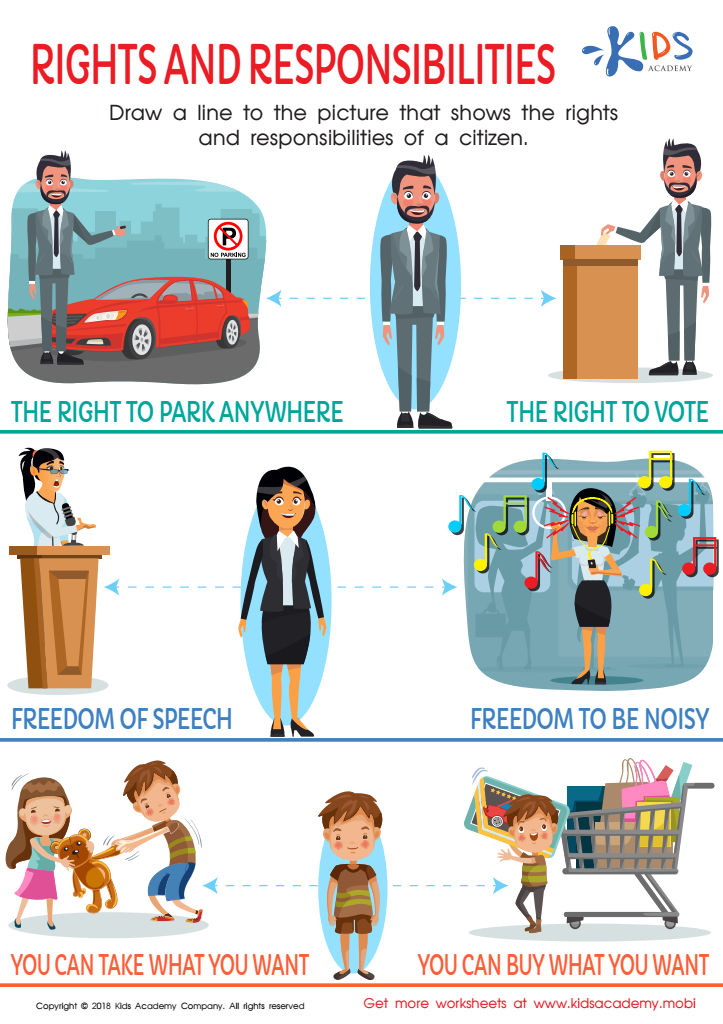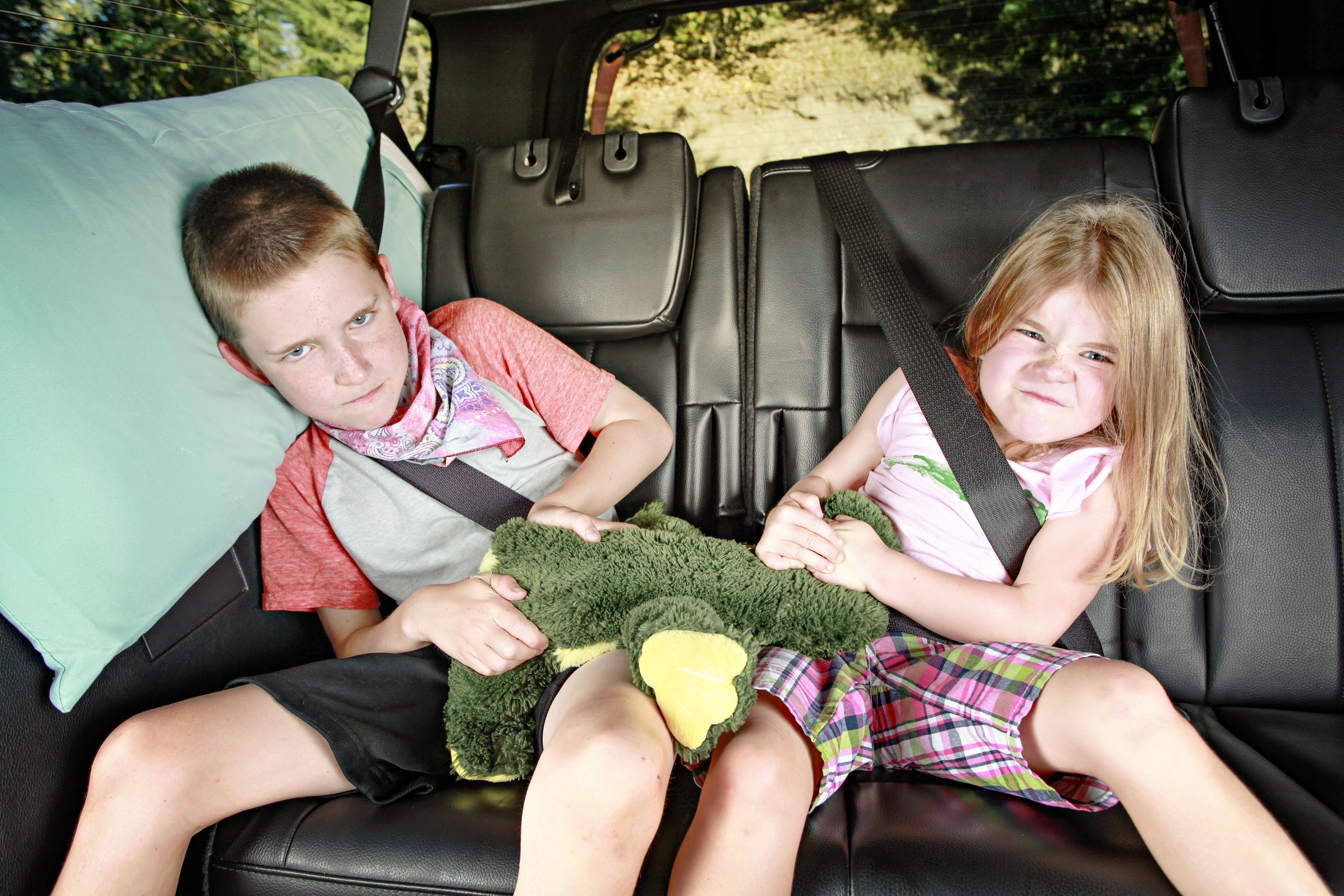Recognizing responsibilities Worksheets for Kids
1 filtered results
-
From - To


Rights and Responsibilities Worksheet
Question/Answer
How to test a Grade 1 student’s Recognizing responsibilities skills?
To test a Grade 1 student's recognizing responsibilities skills, provide them with scenarios or stories that involve simple tasks or duties, such as cleaning up toys, feeding a pet, or helping a friend. Then, ask the student to identify the responsible action in each scenario and explain why it is important, assessing their understanding of responsibility through their responses.
What are some effective activities to train students’ Recognizing responsibilities skill when teaching them about Governance and Civics?
Effective activities for training students in recognizing responsibilities in Governance and Civics include role-playing government functions, debating current events and policies, participating in mock elections, simulating legislative processes, engaging in community service projects, and analyzing case studies on civic responsibilities. These activities encourage active learning and help students understand their roles and responsibilities in a democratic society.
How does the mastery of the Recognizing responsibilities skill affect a student's performance at an early age?
The mastery of the Recognizing Responsibilities skill at an early age significantly enhances a student's performance by fostering a sense of accountability and discipline. This skill encourages them to take ownership of their tasks and decisions, leading to improved organizational skills, time management, and a proactive approach to learning and social interactions, thereby positively impacting their academic and personal development.

 Assign to the classroom
Assign to the classroom












